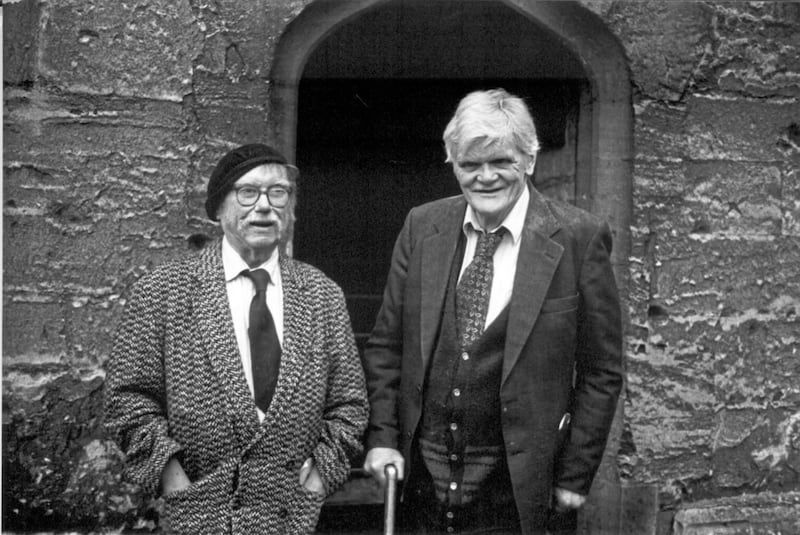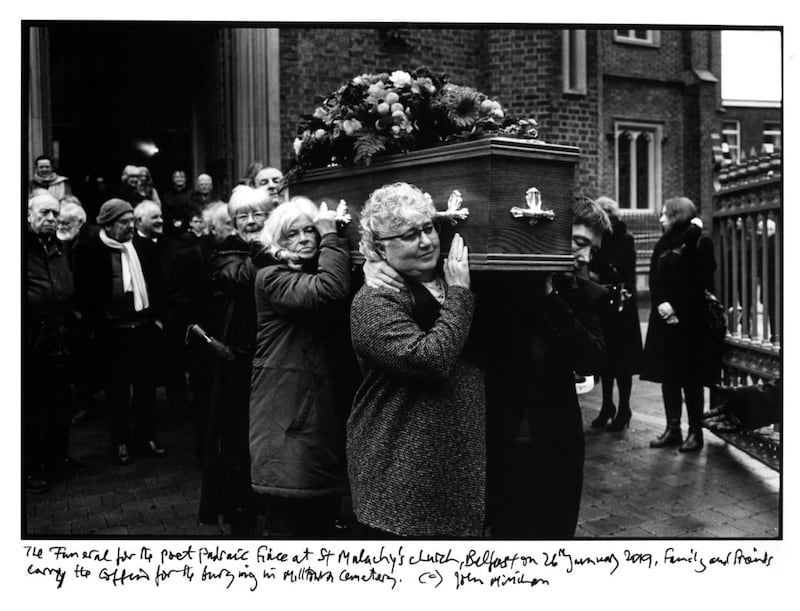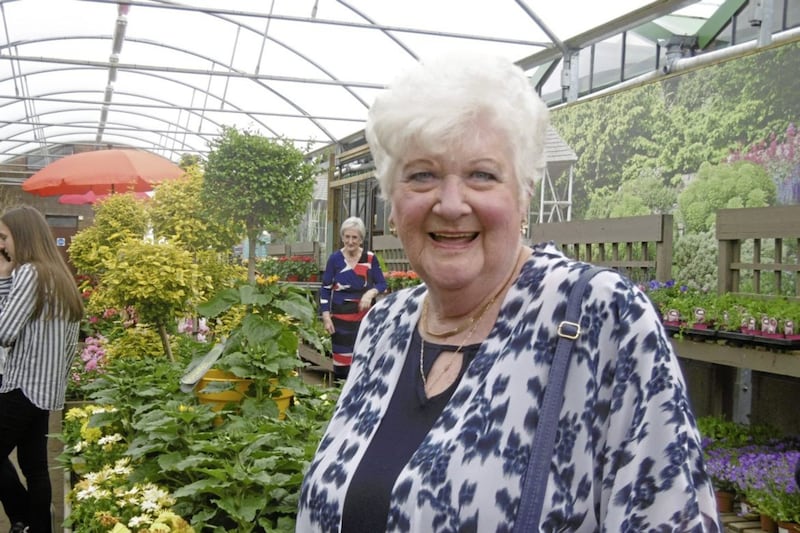SOME time in the summer of 1984 while working in Belfast I was introduced to the writer Brian Keenan at the bar of the Europa Hotel. I can’t remember what I was doing there, but it would have certainly something to do with what’s become known as ‘the Troubles’.
Brian had seen my photographs of Samuel Beckett and suggested I meet and photograph his friend the poet Padraic Fiacc. He would arrange the meeting for the following day at The Crown Bar across from the Europa. That meeting would become eventful for the three of us.
Padraic Fiacc, who died in January, aged 94 years, was to poetry what the artist Francis Bacon was to painting; unlike Bacon, Fiacc spent most of his writing life in the literary wilderness.
Poets and photographers are image makers – great poets leave us great lines, as photographers leave us great pictures. One of those memorable Fiacc images that I have lived with and can never forget, is ‘The prayer book is putting on fat with in memoriam cards’, from his poem More Terrorists, published in his collection Missa Terribilis, Blackstaff, 1986.
That was the year that Brian Keenan was kidnapped in Beirut, Lebanon, and kept for nearly five years as a hostage, chained for most of that time in underground tunnels. He was released in 1990, publishing the highly acclaimed and award-winning autobiographical account An Evil Cradling the following year.
I had always been in contact with Padraic and every time I was in Belfast I would visit. When Brian was kidnapped, I invited Padraic to London to give readings with support from actors at various Irish venues, like the Mean Fiddler in Harlesden, and literary pubs.
Padraic loved being in London and was happy to support all we were doing for Brian who had done his thesis on Fiacc while at university.

Over the years that Padraic visited me in London and Oxford I got to know about the man born Patrick Joseph O’Connor in Belfast in 1924. His family emigrated to the United States in 1929, settling in New York city, in an area of West Side Manhattan known as Hell’s Kitchen, which was then populated mainly by the Irish and which was a place where violence and poverty were part of daily life.
Film directors Jules Dassin made the film noir classic The Naked City there in 1948 and William Friedkin shot The French Connection there in 1971, a true story about an Irish-American cop called Eddie Egan. Padraic told me he would see the camera crews on the streets daily.
He would talk to me about his friend the poet Padraic Colum who taught in New York. Padraic loved the poems of Gerard Manley Hopkins, Baudelaire and the First World War poet Edward Thomas who wrote the poem Adlestrop.

It was based on a railway journey Thomas took in June 1914 during which his train stopped at the now closed station in the Gloucestershire village of Adlestrop. When Padraic visited me in Chipping Norton, Oxfordshire, in 1995, I drove him to Adlestrop to take a picture of the station's sign, which pleased him greatly.
He was enormously engaging, enriching and provocative a person as I have ever met, at times a smouldering volcano, who consistently confronted the horrors of the Northern Ireland Troubles. A man who could not bear phoneys, he spoke and wrote the truth; a Christ-haunted man and a secular mystic with an acute sensitivity to the agony of life which became the predominant feature of many of his poems.
Always happy to allow me to take photographs and particularly fond of my friend the blind poet John Heath Stubbs, who would come to visit me in Chipping Norton and west Cork from his home in Bayswater London; they were both mavericks.
John liked Padraic Fiacc and thought him a fine poet. John should have been the poet laureate and Padraic Fiacc, as the poet of the Troubles, should have received much greater recognition.
:: Brought up in Athy, Co Kildare, former Fleet Street photographer John Minihan now lives in west Cork. For more see johnminihan.com







